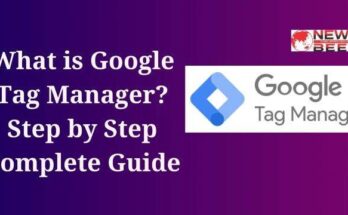Affiliate marketing is a performance-based digital marketing strategy where businesses (advertisers or merchants) reward individuals or other businesses (affiliate marketers or publishers) for driving traffic or sales to their products or services through the marketer’s marketing efforts. This compensation is typically in the form of a commission or a percentage of the sale generated through the affiliate’s promotional activities.
Historical Context
The concept of affiliate marketing can be traced back to the early 1990s when it was primarily used in the adult entertainment industry. However, it has since evolved into a mainstream marketing strategy embraced by various industries worldwide. The proliferation of e-commerce and the internet’s growth played a pivotal role in the expansion of affil marketing.
Key Players in Affiliate Marketing
Successful affiliate marketing campaigns involve three primary parties:
Advertiser (Merchant)
The advertiser is the business or company that offers a product or service and is looking to promote it through affiliate marketing. Advertisers provide affiliates with promotional materials such as banners, text links, and tracking codes to facilitate their marketing efforts. They are responsible for setting the commission rates and monitoring the performance of their affiliate program.
Affiliate Marketer (Publisher)
Affiliate marketers, also known as publishers, are individuals or businesses that promote the advertiser’s products or services through various marketing channels. These channels can include websites, blogs, social media platforms, email marketing, and more. Affiliates earn commissions for driving desired actions, such as clicks, leads, or sales, through their marketing efforts. They play a crucial role in creating content and effectively reaching their target audience.
Consumer (Customer)
The consumer is the end user of the product or service being promoted through affil marketing. They may come across the affiliate’s marketing content, click on affiliate links, and make a purchase or take another desired action. The consumer’s actions are what ultimately generate revenue for both the advertiser and the affiliate marketer.
How Affiliate Marketing Works
Affiliate Program Setup
For affiliate marketing to function, an advertiser must establish an affiliate program. This program outlines the terms and conditions of the partnership, including commission rates, tracking mechanisms, and promotional guidelines. Advertisers often utilize affiliate marketing software or platforms to manage these programs efficiently.
Also, Read This: What is Digital Marketing in Hindi
Tracking and Analytics
Tracking is a fundamental aspect of affiliate marketing. To accurately determine the commissions owed to affiliates, sophisticated tracking systems are employed. These systems record the actions of consumers who interact with affil marketing content, such as clicks, leads, or sales. Cookies, unique tracking links, and affiliate IDs are commonly used tools for monitoring.
Commission Structure
Affiliate marketers earn commissions based on a predefined structure outlined in the affiliate program. These commissions can be:
- Pay-Per-Sale (PPS): Affiliates earn a percentage of the sale amount when a referred customer makes a purchase.
- Pay-Per-Click (PPC): Affiliates earn a commission for each click generated through their affiliate links, irrespective of whether a sale occurs.
- Pay-Per-Lead (PPL): Affiliates earn a commission for each lead or prospect they refer, such as a sign-up or registration on the advertiser’s website.
The choice of commission structure depends on the advertiser’s goals and the nature of their products or services.
Affiliate Marketing Strategies
Affiliate marketers employ various strategies to promote products and maximize their earnings. Some of the most common strategies include:
Content Marketing
Content marketing involves creating valuable and relevant content that attracts and engages the target audience. Affiliates often use blogs, articles, videos, and reviews to promote products or services and include affiliate links within this content.
Email Marketing
Affiliate marketers build email lists and send targeted promotional emails to their subscribers. These emails contain affiliate links and persuasive content designed to encourage recipients to take the desired action.
Social Media Promotion
Affiliates leverage social media platforms like Facebook, Instagram, Twitter, and TikTok to reach a wider audience. They create engaging posts, stories, and videos that include affiliate links to drive traffic and conversions.
Search Engine Optimization (SEO)
Affiliates optimize their websites and content for search engines to increase organic traffic. This strategy involves keyword research, on-page optimization, and link-building to rank higher in search engine results pages (SERPs).
Paid Advertising
Some affiliates invest in paid advertising campaigns, such as Google Ads or Facebook Ads, to drive targeted traffic to affiliate offers. They pay for clicks or impressions and aim to generate a positive return on investment (ROI).
Benefits of Affiliate Marketing
Cost-Effective
Affiliate marketing is cost-effective for advertisers since they only pay commissions when desired actions are completed. This makes it a low-risk advertising model.
Performance-Based
Affiliate marketing is inherently performance-based, which means affiliates are motivated to deliver results. Advertisers benefit from increased sales and brand exposure.
Expanding Market Reach
Affiliate marketers can reach a broader audience than traditional marketing methods. This is particularly valuable for businesses seeking to enter new markets or demographics.
SEO and Content Generation
Affiliate marketers often create high-quality content that can boost the advertiser’s SEO efforts. Quality content can improve search engine rankings and organic traffic.
Passive Income Potential
Affiliate marketing can generate passive income for affiliates. Once content is created and affiliate links are in place, affiliates can continue to earn commissions over time.
Challenges in Affiliate Marketing
Competition
As affiliate marketing has grown, so has the competition. This can make it challenging for new affiliates to gain a foothold in their chosen niche.
Fraud and Scams
Affiliate marketing is susceptible to fraud, such as click fraud or fake leads. Advertisers need to implement robust fraud detection mechanisms.
Compliance and Regulations
Affil marketing is subject to various regulations, including disclosure requirements and data protection laws. Adhering to these regulations is crucial to avoid legal issues.
Shifting Consumer Behavior
Consumer behavior and preferences can change rapidly, affecting the effectiveness of affil marketing strategies. Staying updated and adaptable is essential.
Successful Affiliate Marketing Examples
Amazon Associates
Amazon’s affiliate program, known as Amazon Associates, allows affiliates to promote a wide range of products from the e-commerce giant. Affiliates earn commissions based on sales generated through their referral links.
ClickBank
ClickBank is a popular affil marketing platform that specializes in digital products such as e-books and software. Affiliates can choose from a vast marketplace of products to promote.
ShareASale
ShareASale is an affiliate marketing network that connects advertisers with affiliates. It offers a diverse range of products and services for promotion.
Rakuten Marketing
Rakuten Marketing is a global affil marketing network that connects advertisers with affiliates in various industries. It provides advanced tracking and reporting tools.
The Future of Affiliate Marketing
Emerging Trends
- Influencer Marketing: Collaborations between affiliates and social media influencers are becoming more common.
- Video Content: Video marketing, including YouTube affiliate channels, is on the rise.
- Voice Search Optimization: As voice assistants become more popular, optimizing for voice search is gaining importance.
- AI and Machine Learning: These technologies are enhancing affiliate tracking, personalization, and targeting.
Technological Advancements
- Blockchain Technology: It can provide transparent and secure tracking of affiliate transactions.
- Data Analytics: Advanced analytics tools are helping advertisers and affiliates make data-driven decisions.
- Mobile Optimization: As mobile usage grows, optimizing for mobile devices is crucial.
Read Also:- Android All Versions Names and Launching Date
Evolving Consumer Expectations
- Privacy Concerns: Consumer demand for data privacy is impacting affiliate tracking and targeting.
- Personalization: Consumers expect personalized recommendations and experiences from affiliates.
- Sustainability: Affiliates promoting eco-friendly products align with growing consumer sustainability concerns.
Conclusion
Affiliate marketing is a dynamic and evolving digital marketing strategy that offers numerous benefits to advertisers, affiliate marketers, and consumers alike. It thrives on performance-based incentives, cost-effectiveness, and the ability to reach diverse audiences. However, it also faces challenges related to competition, fraud, compliance, and changing consumer behavior.





I’m glad I came across this webpage. I was looking for something else when I stumbled on it. Nice work.
This is a pretty cool page. One of the best posts I’ve come across in quite some time. I hope to see more.
This is a really cool page. One of the best posts I’ve found in quite a while. I hope to see more.
A great post without any doubt.